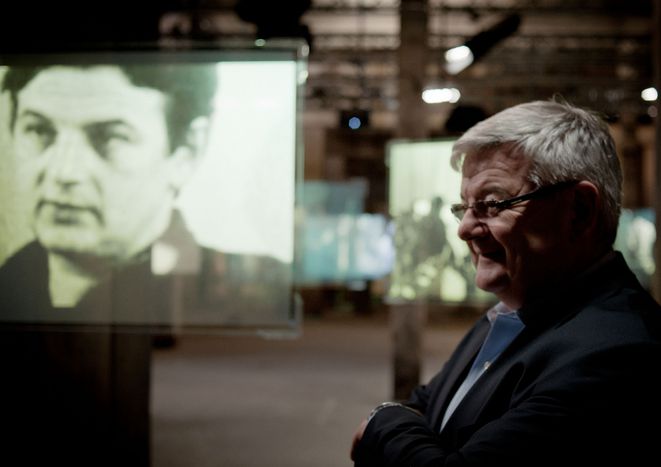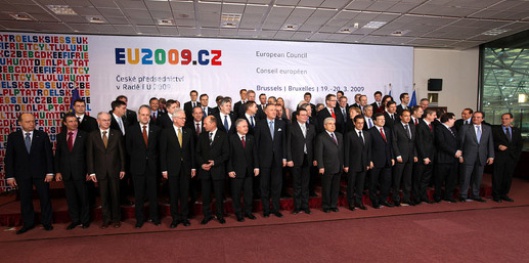
Joschka Fischer takes a gloomy view on Europe
Published on
“We, as Europeans, are not able to do our homework. If we do not act stronger, history will beat us up!” When Joschka Fischer, Germany’s former minister for foreign affairs, came to speak at the London School of Economics at the end of February, he did not carry too many positive words in his luggage.
Instead he jolted every EU enthusiast from blurry dreams about our ‘well’ functioning institution. But rather than being a turn-off for aggrieved listeners, Fischer’s remarks gave cause to inspire and motivate one or another to get even more involved in creating a successful future for the European Union.
China as a new global player
With Deng Xiaoping’s economic reforms and the definite ending of Mao-ism, China has become a powerful actor on the global stage. Therefore the other actors on this stage have to make room and communicate, rather than living in fear of the new member.
Fischer argued that "the dreams (that) people are dreaming today, everywhere in the world, are more or less the same”.
With access to information available to a much larger part of the population, new groups of people become mobile, able to participate in the process of Globalization. This involves the demand to open our eyes to the new global reality emerging.
With a rapidly growing number of people entering the world market (1972: 8 Mio.-1Bill.), 2009: 3-5Bill.) the West needs to rethink. As power slowly swashes over to the poor (countries), a large scale power shift, and a shift of demand for control is coming.
For some kings of economy and politics this will mean a sharing of the throne. But Fischer warned these kings with a wagging forefinger. New aspects of interconnectivity will “force us into a new concept of globalization”, but do not allow us to confront Asia’s countries as villains trying to snatch away the well being of Europe and the US.
Hence “we have no moral right to deny the same standards to the ‘rest’ of the world”.
 (The family photo of the EU27 - Can an EU of 27 deliver? Image: Czech EU presidency)
(The family photo of the EU27 - Can an EU of 27 deliver? Image: Czech EU presidency)
Can we deliver?
Fischer made a very strong and clear appeal to the audience, addressing Europeans as a whole. He said it's time for us to “wake up”. This is not the time for lying to ourselves, and rest on the laurels of past achievements. To illustrate his point, he cited Germany's pride in considering herself to be the world’s leading country for exports.
In his view Europe is not at all integrated enough to act decisively on the global stage. With an enlarging European Union, it becomes more and more difficult to reach compromises in substance and time, so it all comes down to a simple question: “Can we deliver”? This meaning can the EU contribute to international security, economic, political, social etc. issues as a closed entity, presenting a clear, convincing structure?
Therefore Fischer criticized empty words and reforms, citing the need for a shift away from protectionism and an urgent necessity to get the Lisbon treaty out of its current limbo status. Adding to this missing structure to convert the existing zest for action into tangible results, Fischer pointed out the EU’s relation to its opaque neighbour Russia.
The EU should not over- and underestimate Russian power. There has to be a healthy relationship, paying a moderate respect to Russia, showing their relevance for the EU’s behavior.
Secondly in doing so, the EU should not be guided by Russia’s ‘power games’. Here, Fischer pointed to “Putin’s new Christmas event 2008: “Gasprom”. The key question is: “What should be Russia’s role in the new Europe?”.
Concluding his remarks, Fischer ended with three key messages: Don’t fool yourselves any longer; come to terms with a changing global reality; and eventually create a stronger EU.
But he did not go on to give any clear answers. Fischer supported Turkey's accession to the EU on the one hand, arguing that it builds a bridge to the Muslim world. But on the other hand, he pointed out if the EU continues enlarging as it does, it will “reach up to the North pole” in a couple of years.
So what is able to decide over the enlargement? Fairness is certainly not a term for describing these decisions. His critique did not imply a new structural design either.
But it is for sure helpful to consider negative views of the EU, so that one really questions its outcomes.
How did Fischer encapsulate all this so wryly? "Oh, what a wonderful couple the EU is, from the outside.... But, nobody knows how the sparks fly when they are at home!”
Joschka Fischer's lecture on 'Asia and Russia in the Age of Globalization: the impact for Europe’s future' took place at the LSE on 24th February 2009
By Fanny Hass



